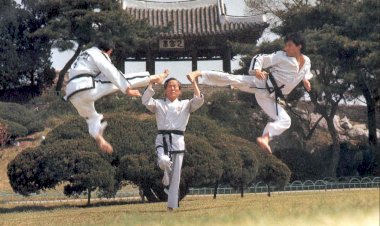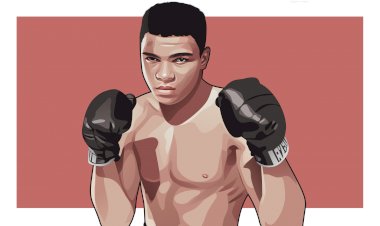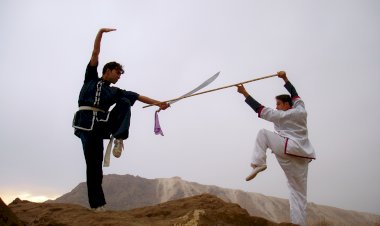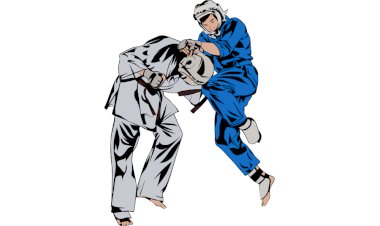How do you recognise a McDojo
All those who have been involved in the martial arts scene for several years know them, the would-be masters, fake gurus and McDojos. The term McDojo is made up of the two words McDonald's and Dojo, Dojo is a place where martial arts are trained. In the next sections we would like to show you which signs you can recognise as a McDojo.
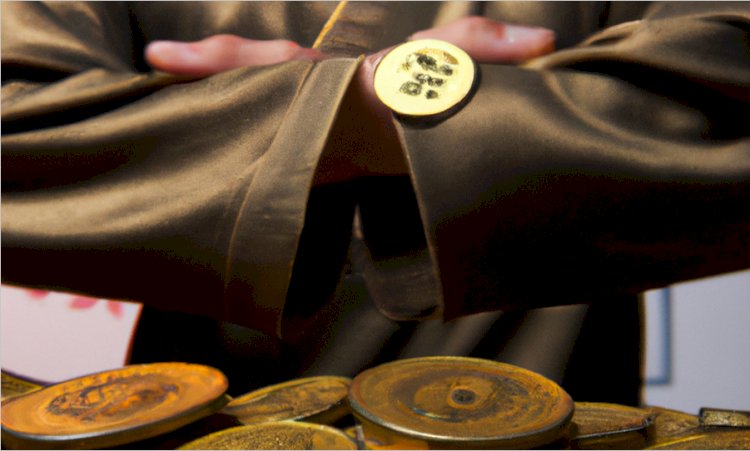
What is a McDojo?
The term "McDojo" stands for martial arts schools where making money is more important than the quality of teaching. A McDojo exists for purely commercial reasons. The main aim of these schools is to collect as much money as possible from the students.
In return, simple techniques are offered that have no real use in this form because they do not work on the street or in the ring.
In return, the trainees receive many motivating words, big promises and nice certificates.
A McDojo is a martial arts school that is set up like a McDonald's, which means that you don't need a good cook, but every preparation step is prefabricated and can be learned by anyone in a short time. A McDojo is not about teaching the participants anything, but primarily about earning money.
McDojo often teaches techniques that are easy to learn but useless. The fees are high and many expensive levels and workshops etc. are offered.
The instructors and teachers in a McDojo are often very good at talking but usually have nothing or not much to show.
These people use the martial arts school only to make money and nothing else.
McDojos often charge high fees, advertise with quick promotions and use aggressive sales tactics to attract students. McDojos exist in all martial arts styles and disciplines, from karate to kung fu to taekwondo.
How does a McDojo work?
McDojos use aggressive marketing tactics to attract students. They may offer flashy demonstrations or free introductory courses to attract potential students. Once students are enrolled, they are often bombarded with sales offers for extra equipment, private lessons and exam fees.
In a McDojo, promotions are given frequently and without regard to ability or skill. This leads to a culture of instant rewards where students feel they are making progress without actually putting in the hard work and effort required for real improvement.
In a McDojo, the techniques are usually structured in such a way that they are easy for anyone to learn. There is no need for much practice or repetition.
Students are often overly praised and made to believe that they are talented and will learn the techniques quickly.
The instructors in these McDojos claim to be the "ultimate masters" when in reality they have neither good body control, cannot fight and, when it really comes down to it, could hardly defend themselves.
Through the simple exercises, the students are motivated to take an exam as regularly as possible (typically every 2-3 months). Of course, these exams cost a lot of extra money and require additional equipment, which of course has to be purchased directly from the school.
Through this system, the students have the feeling that they are making progress and only after 2-3 years, when a higher level is reached, do the participants realise that they do not understand the system and cannot fight, despite their high rank, and leave the school.
How to recognise a McDojo
After explaining what a McDojo is, I would like to describe some signs and clues that you can use to recognise a McDojo.
For an experienced fighter or martial artist it is very easy to recognise a McDojo. But especially beginners fall for the tricks of the McDojo schools and let themselves be deceived by the titles, certificates and the great equipment of the school.
In Switzerland, the martial arts scene is not regulated. Anyone can print out a master's certificate and tie on a black belt, open a school and start taking exams.
High fees and everything costs extra
One of the main features of a McDojo is high fees and a lot of hidden costs. These schools often have expensive membership fees and then charge extra for things like tests, promotions and equipment.
In addition to fees, McDojos often require students to buy equipment from the school, such as uniforms, belts and training gear. While it is normal for martial arts schools to sell equipment, McDojos tend to sell these items at a higher price than they are worth and often require students to buy them from the school.
Another way McDojos generate revenue is through their promotional system. Many McDojos have a system where students have to pass several belt exams before they reach the black belt level. In some cases, these exams can be very expensive and there can be many levels to pass before reaching black belt.
In addition, McDojos often require students to purchase special books, videos or other materials specific to their particular martial arts style. These materials may be of little value, but are sold at a high price to students who feel they need them to advance in their training.
Finally, some McDojos offer so-called "accelerated" or "intensive" training programmes, which are essentially a way for the school to make more money by charging students additional fees for more training. These programmes are often marketed to students who want to advance quickly and may include additional exam fees, private lessons or other expensive extras.
In summary, McDojos tend to charge high fees and have many hidden costs. They may require students to buy expensive equipment, pay for multiple belt exams and buy special materials for their martial arts style. Students should be wary of schools that charge high upfront fees and those that have high student turnover due to their exorbitant fees.
All participants progress
Basically, each participant has his or her own pace of learning. One person learns very quickly and the other needs more time. Not every person has the same amount of talent, of course it also depends on where someone stands when they start training.
Basically, there should be no set time limit for learning and progressing to the next level. A good teacher will never push you to the next level until you have the appropriate level.
In a McDojo, on the other hand, promotions are awarded frequently and there is little emphasis on skills or abilities. McDojos often emphasise a culture of instant gratification, where students feel they are making progress without actually putting in the hard work and effort required for real improvement.
In a McDojos, it doesn't matter how fast you learn or how good you are. As long as you pay for your new rank, you will get it.
A reputable martial arts school focuses on teaching students the skills they need to succeed. Promotions are earned through hard work, dedication and skill. A good school will not sacrifice the integrity of the ranking system to earn more money.
Quantity instead of quality
McDojos may place more emphasis on cramming as many students as possible into a class than ensuring that each student receives individual attention and instruction. This can result in students not receiving the proper guidance they need to improve their skills.
McDojo's are all about quantity rather than quality of techniques . The whole system is bloated with many different techniques. There it is more about the student knowing all 5 versions of a defence rather than the quality of the technique to make that technique work effectively on the street.
A good martial arts teacher prioritises quality over quantity. He takes the time to understand the individual strengths and weaknesses of each student and gives them individual tuition to improve. The teacher should also ensure that students are not put in situations where they risk hurting themselves.
A good teacher not only explains to his students what they should do, but also what the background behind the exercise is and why you should do it that way.
Realistic training
In a good school, emphasis is placed on realistic training. The attacks must be realistic and fast. This is the only way to enable students to defend themselves in a real situation.
In a McDojo, reality is often distorted. The students are made to imitate the movements and skills of the teachers without ever discovering that they are not able to defend themselves in the real world.
Especially if the attack is always done in an unrealistic way and often very slowly then this is a sign that the techniques do not work.
As soon as reality is interpreted in an impractical way for the sake of tradition or the teacher, this is a clear sign of a McDojo.
What makes a good martial arts teacher?
A good martial arts instructor is essential for anyone who wants to learn martial arts. Not only do they have the knowledge and experience to teach effective techniques, but they also serve as role models for their students. Here are some important qualities that make a good martial arts teacher:
- Passion and dedication: a good martial arts teacher is passionate about their art and committed to their students. They are committed to constantly improving their own skills and passing on their knowledge to others.
- Experience and knowledge: A good martial arts teacher has extensive experience and knowledge in his art. He has trained with experienced instructors and competed at a high level. They are constantly learning and trying to improve their skills and knowledge.
- Communication skills: A good martial arts instructor is able to effectively communicate techniques and concepts to students of all levels. He is able to explain complex movements clearly and precisely and adapt his teaching style to the needs of each student.
- Patience and understanding: A good martial arts teacher understands that each student learns at their own pace and has their own unique challenges. They are patient and understanding with their students and provide individual attention to help them overcome obstacles.
- Positive attitude: A good martial arts teacher has a positive attitude and creates a supportive learning environment. He encourages his students to improve themselves while emphasising the importance of sportsmanship and respect.
- Professionalism: A good martial arts teacher maintains a high level of professionalism in their teaching and interactions with students. They are reliable and consistent in their teaching and hold themselves and their students to a high standard of behaviour.
- The teacher should also be able to offer criticism and respond to students' questions and problems.
In summary, a good martial arts teacher is essential for anyone who wants to learn martial arts. They have a combination of passion, experience, communication skills, patience, positivity and professionalism. Finding a teacher with these qualities will ensure students receive effective instruction and a positive role model.
Not every bad martial arts school is a McDojo
McDojos are indeed a problem in the martial arts community, but not every bad martial arts school is a McDojo. Some schools may have well-meaning instructors who are simply inexperienced or lack the necessary skills to provide quality instruction.
It is important to distinguish between a McDojo and a poorly run martial arts school. A McDojo is a school that prioritises profit over quality instruction, while a poorly run school may simply lack organisation or have unqualified instructors.
To determine whether a martial arts school is a McDojo or simply poorly run, there are some key factors to consider. First, look at the school's fees and pricing structure. A school that charges high fees for everything from exams to equipment could be a McDojo. On the other hand, a school that charges reasonable fees but has disorganised classes or inexperienced instructors may simply be poorly run.
Another factor to consider is the quality of teaching. A McDojo may promote students quickly without regard to their abilities, while a poorly run school may have an unclear and poor examination structure. It is important to observe classes and talk to current and former students to get a feel for the teaching methods and effectiveness of the school.
Martial Arts Articles by Bushu.ch

